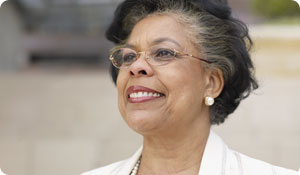
Most of us have felt it at least once in our lives-that little voice inside our head that says to us, "Watch out" or "You're on the right path." Or maybe we just knew something though we didn't know why and couldn't produce evidence. This feeling is intuition.
What Is Intuition?
The dictionary tells us intuition is a quick and ready insight or the power or faculty of attaining direct knowledge or cognition without evident rational thought and inference.
Spiritualists, including physician and author Dr. Deepak Chopra say, "Intuition is a very interesting form of intelligence that goes beyond the rational mind...When you are experiencing intuition, your pre-frontal cortex lights up, and is a form of intelligence, which is relational, contextual, and holistic."
Psychologists claim it's the ability to read situations based on nonverbal cues or a form of unconscious reasoning. Jessica Zucker Ph.D. is a licensed clinical psychologist specializing in women's health. According to her, "A woman's intuition is thought of as a manifestation of her innate, perceptive abilities to read inner and outer cues. Oftentimes, women are sensitively attuned to those around them and feel like they can sense what is going on in the environment and/or feel as though they can pick up on what others might be experiencing through nonverbal communication. Nonverbal cues might include reading facial expressions, decoding emotions expressed through the body, being keenly aware of tone of voice, or intuiting what people are feeling through the way they interact with themselves and others."
If everybody has intuition, why is women's intuition mentioned more often than men's? This may be because women are more acclimated and acculturated toward seeing the whole picture in a situation in a relational way that includes elements that are not directly obvious. Women are also oftentimes more sensitive and in tune with their feelings than men are. That's not to say many men aren't just as in touch with their sensitive side; it's just that society values and supports women more often to be the sensitive ones.
How Can Intuition Help You Make Better Health Choices?
Pay attention to what your intuition tells you when you're faced with medical or health choices. For example:
- If your doctor recommends a particular treatment, but something doesn't feel right, trust your gut and get a second opinion.
- When you know deep inside something's wrong, but your healthcare provider tells you you're fine, pay attention to your intuition. You may need to switch providers or persuade him to keep looking for something less obvious.
- When you sense that plans you've made might not be a good idea, investigate why you feel that way. Could you be putting yourself in harm's way or heading down the wrong path?
- When someone is pushing you to do something you know deep down is wrong for you (whether that's to take an difficult exercise class, drink an extra glass of wine or sign on for more responsibilities), go with your gut and just say "no."
Women sometimes also know intuitively when something is "off" with their child or partner. Trust your intuition and keep a close eye on the health and wellbeing of those you love. By respecting your intuition and trusting your senses, you're using all the tools at your disposal to live your healthiest life.
Jessica Zucker, Ph.D reviewed this article.
Sources:
Merriam-Webster Dictionary
http://www.merriam-webster.com/dictionary/intuition
Deepak Chopra
https://www.deepakchopra.com/video/view/295/ask_deepak__what_is_intuition
Jessica Zucker, Ph.D
http://drjessicazucker.com/





